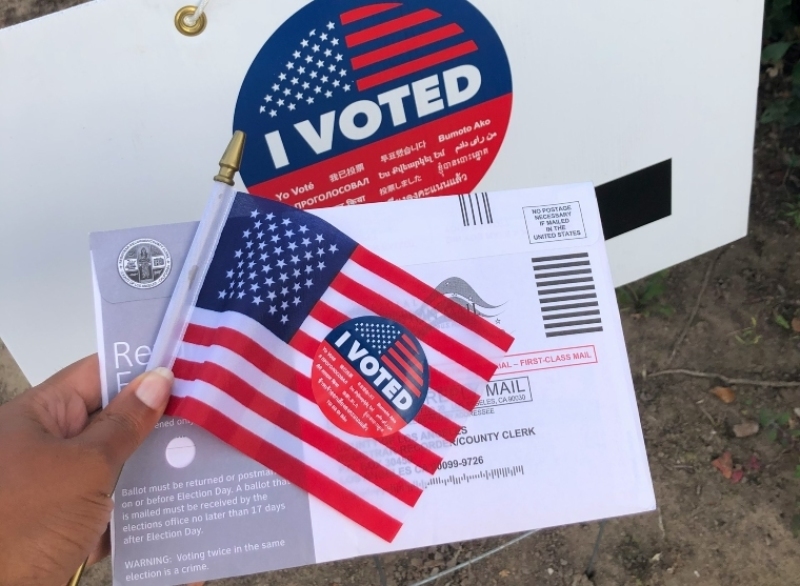
Lifeway Research recently conducted studies examining the perspectives of U.S. Protestant pastors and the American public regarding political endorsements, revealing minimal practice and support for such endorsements within churches.
The findings indicate that nearly all pastors, specifically 98 percent, have not endorsed any candidates during church services this year. In contrast, 60 percent of Americans consider it inappropriate for pastors to endorse candidates in church settings, a notable decrease from 86 percent reported in a 2008 survey.
This year, only 2 percent of pastors have made endorsements during church services, while 25 percent reported endorsing candidates for public office outside their church roles. Additionally, 23 percent of pastors chose not to disclose their preferences in the presidential election, which marks a significant increase from 4 percent in 2020 and 3 percent in 2016. The percentage of pastors unwilling to endorse candidates during church services has remained consistent across the last three presidential elections, recorded at 98 percent in 2024, 2020, and 2016. However, there has been a decline in the number of pastors who have publicly supported candidates outside of church, decreasing from 32 percent in 2020 to 25 percent in 2024.
Demographic variations reveal that older pastors are more likely to endorse candidates outside their church roles, with 36 percent of those aged 65 and older and 32 percent of those aged 55-64 having done so, compared to only 18 percent of pastors aged 45-54 and 11 percent aged 18-44. Additionally, African American pastors (40 percent) are more likely to endorse candidates outside their church roles compared to white pastors (24 percent) and Hispanic pastors (20 percent). Pastors from Southern churches (30 percent) are also more likely to endorse candidates compared to those in the Midwest (22 percent) and Northeast (20 percent).
In terms of denominational affiliations, Pentecostal (34 percent), Baptist (33 percent), and Methodist (25 percent) pastors are more inclined to endorse candidates outside their church roles than Lutheran pastors (15 percent). Furthermore, pastors from smaller churches, specifically those with fewer than 50 attendees, report the highest rates of endorsing candidates outside their church.
Politically, pastors identifying as Republicans (32 percent) or Democrats (28 percent) are more likely to endorse candidates outside the church compared to independents (16 percent). Those supporting former President Donald Trump (38 percent) and Vice President Kamala Harris (34 percent) also show higher rates of endorsement compared to those who are undecided (8 percent).
Public opinion on the acceptability of pastors endorsing candidates outside their ministerial roles appears divided. Approximately 45 percent of U.S. adults deem it acceptable for pastors to endorse candidates, though only outside of church, while 38 percent disagree, and 16 percent are uncertain. These figures align closely with results from 2020.
American views on in-church endorsements are predominantly negative, with only 29 percent of U.S. adults finding it appropriate for pastors to endorse candidates during services. Conversely, 60 percent oppose this practice, with 42 percent strongly dissenting. However, acceptance of in-church endorsements has gradually risen over the past 16 years, climbing from 13 percent in 2008 to 29 percent today.
Many Americans distinguish between pastors being involved in politics and churches engaging in political activities. A majority opposes churches using their resources for campaigning or endorsing candidates during services, with approximately half believing churches that do so should lose their tax-exempt status.
About one in three Americans (32 percent) find it suitable for churches to publicly endorse candidates, while 55 percent disagree, and 12 percent are not sure. Support for this view has remained statistically similar to 2020, although it shows an increase from 22 percent in 2008. Additionally, 28 percent of Americans think it is acceptable for churches to use their resources for political campaigning, while 62 percent oppose this practice.
Moreover, roughly half of U.S. adults (48 percent) believe churches that publicly endorse candidates should forfeit their tax-exempt status. These opinions are consistent with those recorded in 2020. Young adults, African Americans, Hispanics, and regular church attendees show a higher likelihood of supporting public endorsements by churches.
The phone survey of 1,003 Protestant pastors was conducted from August 8 to September 3, 2024, using a stratified random sample derived from a list of all Protestant churches. Additionally, an online survey of 1,200 Americans took place from August 14 to August 30, 2024, utilizing a national pre-recruited panel. To ensure a representative sample, quotas and slight weighting adjustments were applied for factors such as gender, age, region, ethnicity, education, religion, and evangelical beliefs.


















